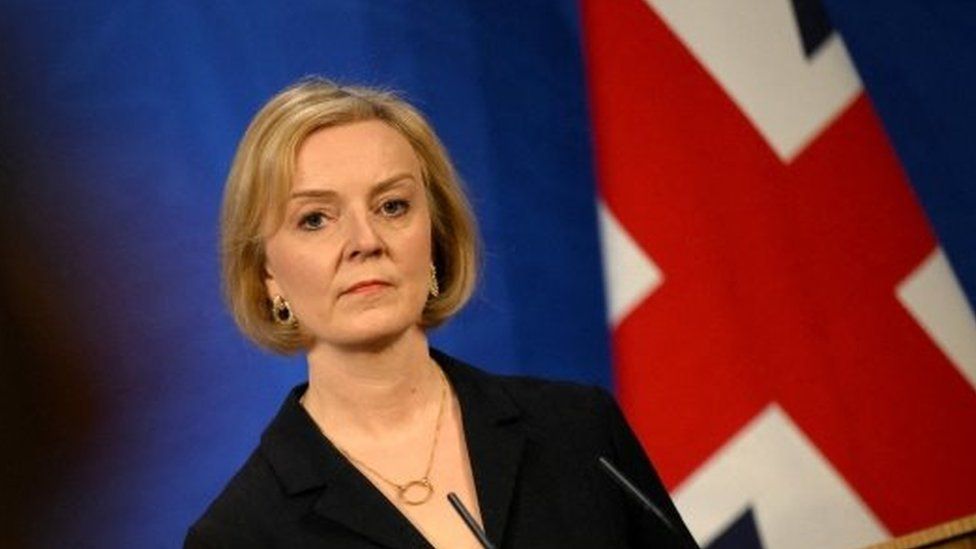Britain’s Ill Wind
With her incapacity and utter lack of common sense, Liz Truss deepened the already-formidable problems of her country.

How many years of education are necessary for one to understand that to increase borrowing at a time of rising interest rates, high indebtedness, low expectations of growth, and a strong likelihood of recession—with, moreover, a gaping trade deficit—while at the same time trying to reduce taxation without concomitant reduction of expenditure, might not be a very good idea?
Apparently the nearly 40 years combined of formal education that the British prime minister, Liz Truss, and her first, even more short-lived chancellor of the exchequer, underwent, were not sufficient. Probably no number of years of formal education would have been sufficient.
Mr. Micawber, however, of Dickens’s David Copperfield, whose level of education was far below that of these two politicians, would have understood the situation completely, without having had to think hard about it. “Annual income twenty pounds, annual expenditure nineteen pounds ought and six,” he said, “result happiness. Annual income twenty pounds, annual expenditure twenty pounds ought and six, result misery.” Britain has been living beyond its means for 40 years, at least, borrowing to sustain levels of consumption that it has not earned, and Truss and Kwasi Kwarteng learned the hard way that what cannot go on will not go on.
The incapacity and lack of courage of the political class, no matter how lengthily or expensively educated, is a clue to the despair that many people now feel in Britain. Its incompetence and lack of probity, its absence of the most elementary understanding, compares unfavorably with the practical intelligence of the local plumber, carpenter, or electrician. No one has confidence that any replacement of Truss from within or without the Conservative Party will be for the better, only incompetent in some different way.
The wrong lessons will be drawn, of course, from the Truss debacle. If lower taxes (even if only in prospect) do not work, then higher ones must. The solution to Britain’s deep-seated problems now offered by almost the entire political class is to turn the country into a giant version of the National Health Service, the country’s socialized health-care system that has made paupers of almost the whole population, which is obliged to accept what it is given whether good, bad, or indifferent.
By her incompetence, Truss has given lower taxation a bad name. We now face a cycle of high taxation and expenditure, with low growth necessitating ever-higher taxation and expenditure. Much of the educated class already believes in the moral value of taxation irrespective of its effects. The British are now trapped into slavery to their state—a state more incompetent, and more corrupt, than its European equivalents or even than the European Union.
It is an ill wind that blows nobody any good. An apparatchik class will prosper among the embers of the slowly expiring economy. Truss, whom no one will remember with affection, was not to blame for the problems of her country, but by her incapacity and utter lack of common sense, she has worsened those problems for years to come. That’s quite an achievement for 44 days in office.
First published in City Journal.